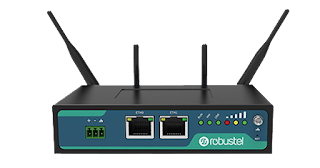How can your business be benefitted by power over Ethernet? – Difference between WiFi and industrial wireless
As the demand for network
connecting devices is increasing every day, the complexity and the cost are
rising equally. To use as less cable as possible for your IP phone, IP cameras,
and access points, you must choose the Power over Ethernet or POE switch, which uses only a single cable to provide both, data connection and
electricity.
Why should you consider power over Ethernet?
- Power over Ethernet offers
high-speed internet connectivity and power to one device using a single
line.
- The switch is very cost-effective
as you won’t need extra outlets or cables and the installation process is
also easy, which doesn’t require too many technicians.
- It has advance power management
function, which will let you control your power budget very efficiently.
Plug and play
Power over Ethernet
switch supports both, IEEE 802.3af and IEEE802.3at, which enables the user to
launch normal or high powered PDs flexibly without any additional setups.
Some Power over Ethernet
switches can provide bags from port number 8 to 48. It also allows high-speed
transmission without any power socket restriction to both, the 15.4w
IEEE802.3af and 30w IEEE.3at devices.
Intelligent technology
The switch enables you to
use power sources more efficiently that will provide a better return on
investment for your business. The POE can detect the power consumption meter
automatically and understand the power needs of every PD, and supply power
according to the needs. This way with POE, you can stop the power wastage,
which means you will save a lot of money.
Power supply policy
These switches can
monitor individual power consumption and will evaluate that with the total
power supply. If you think a specific area needs more power, you can take some
power from where it’s not needed and provide it to there. This power supply
policy will help you to run your business to its full potential.
So, in the end, if you
are still trying to convince yourself if POE is the best option for you or not,
consider these four crucial points.
- Ease of installation
- The benefits will outweigh the
initial costs
- Comes with proper safety
- Can be trusted even if you are
facing power loss
Difference between WiFi and industrial wireless
Reducing the cables are
more than just about lower the electricity bills, it’s also about user
efficiency. With the fast-paced world of today, every business organization
understands that they need to replace the old wired data connection with industrial wireless routers, which doesn’t require large downtime and investments for
the infrastructure.
While many retailers are
aware of the benefits of wireless technology, many are confused about choosing
between WiFi and industrial routers. To understand, we need to dig deep and
will try to understand them differently.
WiFi
WiFi is a term used for a
specific Local area connection based on 802.1, which uses wireless technology
to distribute data. WiFi cannot be termed as a router, but a set of Wireless
local area connection, standardized by IEEE or Institute of Electrical and
Electronics Engineers. Almost every company today is using WiFi connectivity to
share data.
Industrial wireless
Industrial wireless is
nothing more than a bunch of connected devices. Through such a medium, you can
directly communicate with other associates through a bridge or access points.
The difference
When we talk about WiFi,
most people think about free data connectivity in certain public places, like
airports or shopping malls or train stations, etc. While they are lucrative,
many WiFi devices cannot protect your data against pro hackers. But if you use
the industrial wireless, it can provide more security for your private data as
they're well encrypted.




Comments
Post a Comment